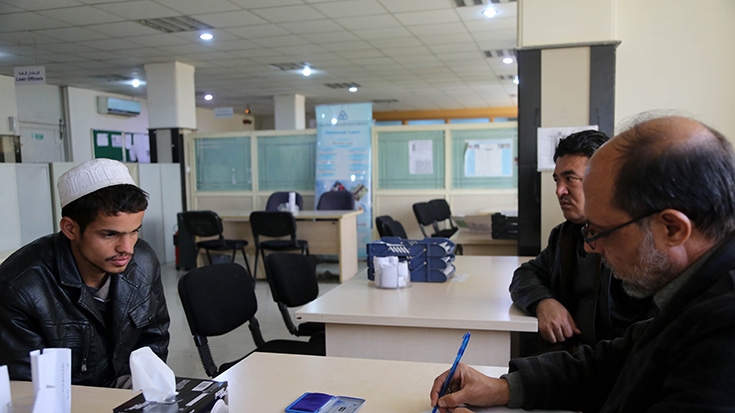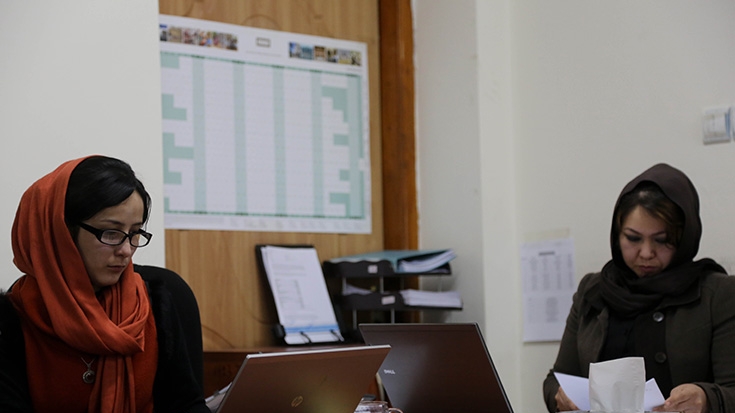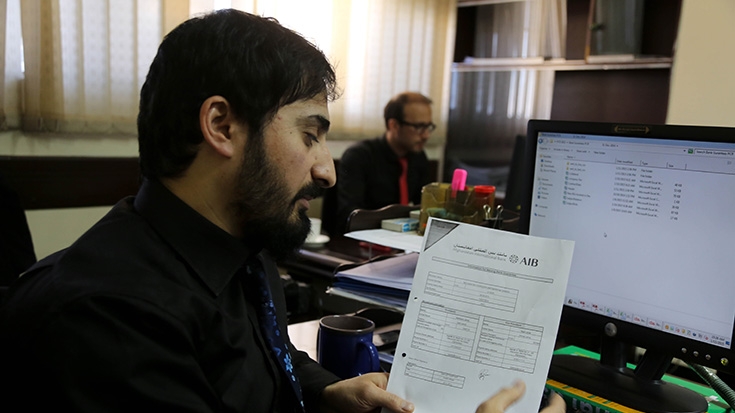Information a click away
Recent credit infrastructure modernization in the banking sector have made transactions easier to process, and have facilitated access to loans for small businesses such as Alam’s. FMFB-A’s deputy of the operations department, Nawid Rahyab, says: “Banks used to have lots of challenges in issuing loans as there was no organized online structure for assessing and managing risks. However, now it is very easy to access information to assess and manage risks.”
A key improvement was the establishment of the Collateral Registry (CR) and Public Credit Registry (PCR) systems, which has enabled FMFB-A to expedite the process of loan issuance, according to Rahyab. The core objectives and priorities of the CR and PCR systems are to provide secure loans and facilitate private sector access to much needed loans.
Another bank employee, Shabnam Ashraf, explains: “Previously, if someone applied for a loan and we wanted to make sure that the person has not received loans from other banks, we would send a letter to other banks asking for information. This was expensive and time consuming, and there were lots of other paperwork requirements associated with the process”.
“But with the activation of CR and PCR systems, our work quality has improved significantly and the risks have greatly reduced. Previously, we had to wait for days for the answer to our letters to arrive, but now it is only a matter of seconds and clicks, and we get all the information about the clients.”
New systems put Afghanistan one step ahead
The CR and PCR systems have been put in operation by Da Afghanistan Bank (DAB), Afghanistan’s central bank, with support from the World Bank Group’s International Development Association (IDA), and the International Financial Corporation (IFC) with financial support from Harakat.
The Collateral Registry and the Public Credit Registry became fully operational in 2014 and are now used by all commercial banks. Bank officials in Afghanistan say that with the establishment of these systems they have taken a step ahead of most of their neighbouring countries. “Only a handful of Asian and European use these systems. We owe a great debt of gratitude to the World Bank, IFC, and other donors for financially supporting the project,” says Hasibullah Refa, AIB’s Trade Finance and Loan Operations Manager.



